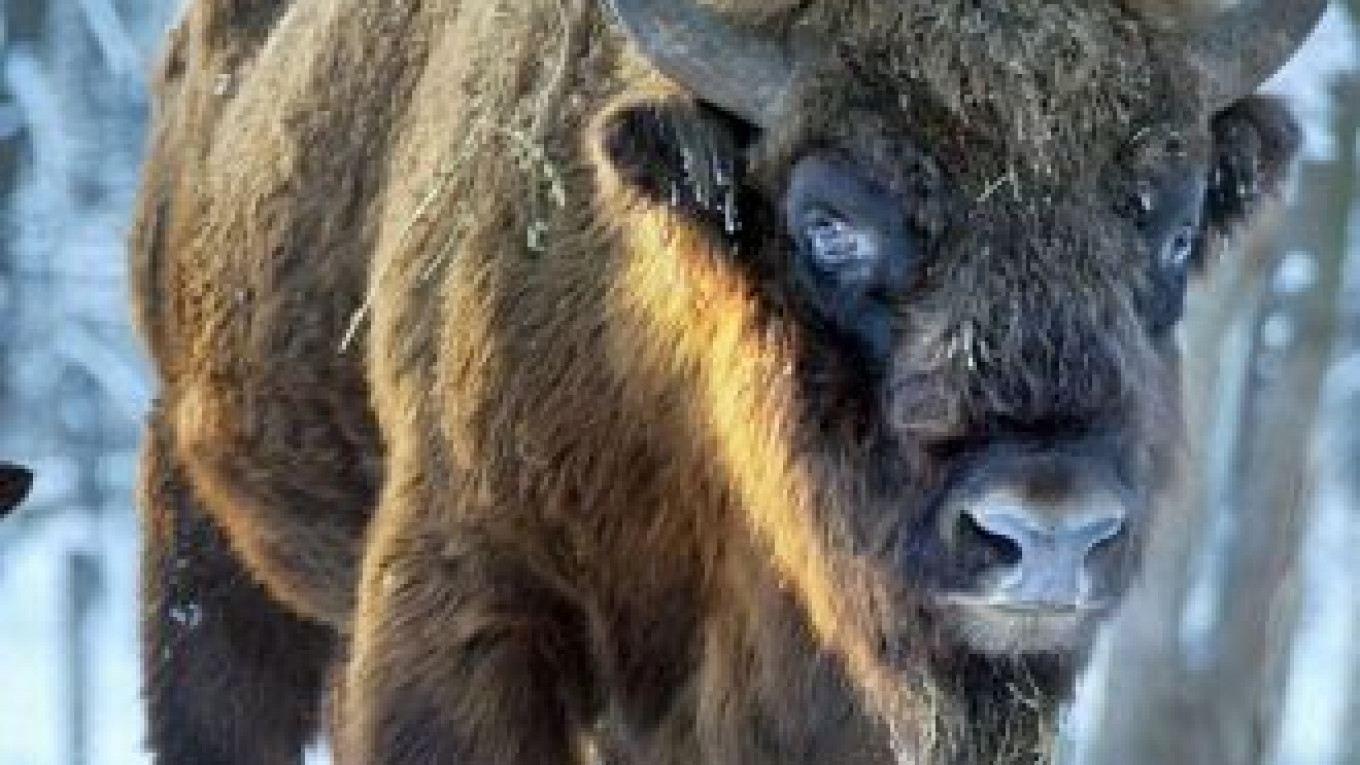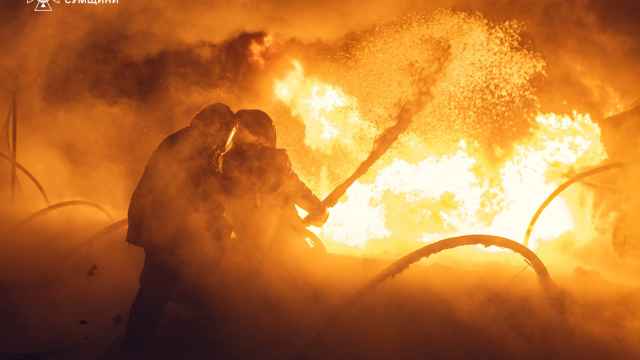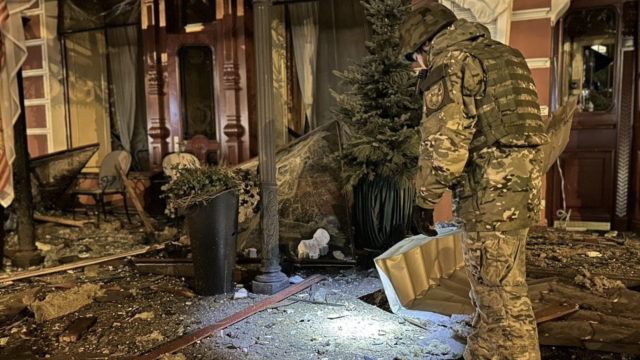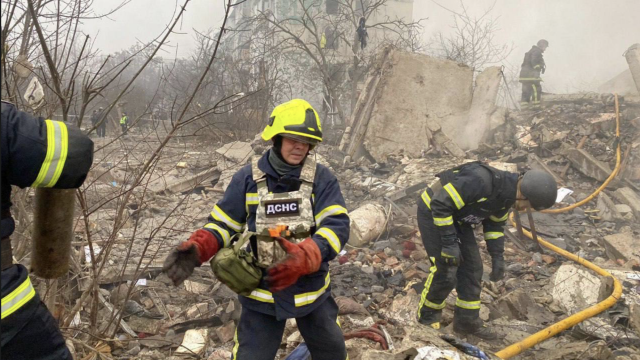Conservationists have demanded an investigation into the death of two European bison at a Moscow region nature reserve.
One male and one female at the Prioksko-Terrasny reserve's bison nursery died from food poisoning on Jan. 7 after eating rotten fruit, according to an announcement on the reserve's website.
Two KaMaZ trucks dumped several crates of rotten mandarins and tomatoes in the Bison enclosure sometime before New Year's, according to a statement on the reserve's website.
"Responsibility for the death of the animals from eating rotten mandarins appears to lie with the administration of the park," the statement said, which went on to demand an investigation into who allowed the poisoned food into the enclosure.
The victims were a 16-year old male called Shponti, who had been brought from a German reserve in an effort to increase the gene pool at the Russian reserve's breeding program, and one adult female.
Greenpeace Russia said on Tuesday that it had appealed to the Prosecutor General and the Natural Resources and Environment Ministry for an investigation into the deaths, which it said were the second and third at the reserve in recent months.
The Priosko-Terrasny reserve has been at the center of efforts to save the European Bison since Soviet times, but has been scandalized in recent years by apparently open warfare between employees and the park's management.
The report on the website, which appears to be written by disgruntled employees, lays the blame for the deaths squarely on the park's director, Andrei Ivonin, a former paratrooper and veteran of the war in Afghanistan.
"The Environment Ministry continues its experiment called 'Can a former paratrooper who is under investigation for major theft manage a nature reserve?'," the statement said.
Related articles:
A Message from The Moscow Times:
Dear readers,
We are facing unprecedented challenges. Russia's Prosecutor General's Office has designated The Moscow Times as an "undesirable" organization, criminalizing our work and putting our staff at risk of prosecution. This follows our earlier unjust labeling as a "foreign agent."
These actions are direct attempts to silence independent journalism in Russia. The authorities claim our work "discredits the decisions of the Russian leadership." We see things differently: we strive to provide accurate, unbiased reporting on Russia.
We, the journalists of The Moscow Times, refuse to be silenced. But to continue our work, we need your help.
Your support, no matter how small, makes a world of difference. If you can, please support us monthly starting from just $2. It's quick to set up, and every contribution makes a significant impact.
By supporting The Moscow Times, you're defending open, independent journalism in the face of repression. Thank you for standing with us.
Remind me later.






